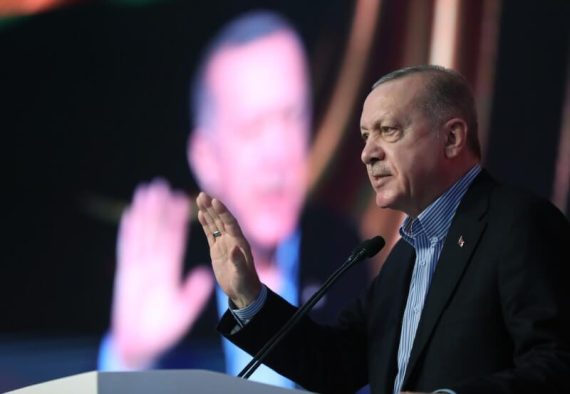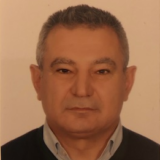T
urkey’s Foreign Minister Hakan Fidan put forth Turkey’s guarantorship proposal at the Cairo Peace Conference on October 21, 2023, about two weeks after the beginning of Israel’s intensified attacks on Gaza.
The global concern to end the grave humanitarian tragedy caused by Israel’s ongoing large-scale military attacks has attracted attention to Turkey’s offer. Although the full content of the proposal has not yet been clearly explained, it is important to take a closer look at it and what it offers.
First and foremost, Turkey appears to have a specific scheme for the guarantor proposal, but is deliberately leaving it open for discussion by experts and all relevant parties. It is hoped that this flexibility will stimulate a broad discussion and lay the foundations for further talks and negotiations.
In his speech on October 25, President Recep Tayyip Erdoğan stated that the proposal is currently the most concrete and effective method to bring a realistic solution to the conflict, at least in the short and medium term.
President Erdoğan stressed that “we are ready to be one of the guarantors of the Palestinian side with our humanitarian, political, and military presence” and invited the countries which have a desire to find a solution to this issue to evaluate the proposal as soon as possible, take concrete steps, and open the doors to peace.
President Erdoğan indicated that Turkey was primarily proposing to be a guarantor “on behalf of Palestine.” Erdoğan suggested that for the full and complete implementation of a possible ceasefire agreement and perhaps a future peace process, any guarantor on behalf of either Palestine or Israel would be helpful.
The model of multiple guarantors for Palestine and Israel, based on the urgent need to stop the current attacks, which have serious humanitarian consequences, could be a step towards achieving a lasting peace this time. Possible guarantor states for Palestine should be drawn from the countries of the region; for Israel, Western countries could act as guarantors.
Ankara’s proposal, the full details of which are not yet known, involves Turkey and regional countries, as well as the U.S. and European countries, and bears similarities to the Astana Process established for Syria, though not entirely.
The primary goal of the guarantors should first be to achieve a ceasefire in Palestine. Turkey’s approach to the post-ceasefire phase is to ensure a solution based on a two-state solution, which is imperative for a lasting peace.
Foreign Minister Hakan Fidan said that the U.S. is also in favor of a two-state solution, but that Israel should be forced by the international community to accept it. Fidan reiterated that “Turkey wants to turn the crisis into an opportunity for peace” and said that Turkey had already conveyed this idea to its interlocutors.
Russia backs Turkey’s guarantorship proposal
The most open support for the Turkish proposal came from Russia. The Foreign Minister of the Russian Federation Sergey Lavrov made the following statement: “We are ready to discuss any constructive proposal. This initiative, which I heard about the other day, is clearly motivated by a desire to de-escalate and normalize the situation.
Any approach to solving the problems in the region should be based on a balance of interests between the parties, not on the imposition of the interests of one party at the expense of the interests of others. It seems to me that this Turkish initiative seeks to achieve just such a balance. We will be ready to work together to take this into account.”
The United States and European countries, which unconditionally support Israel’s attacks, do not seem interested in Turkey’s proposal to stop the attacks and find a solution to the ongoing conflict. They have all been completely silent about the Turkish proposal; on the contrary, these countries appear to support the continuation of the Israeli attacks on the Gaza Strip, despite the fact that the attacks are not only aimed at destroying Hamas, which they consider a terrorist organization, but also at cleansing the entire Gaza Strip of Palestinians.
Recommended
Moreover, no matter how constructive Ankara’s proposal may be, certain Western capitals, especially Washington, are deliberately showing no interest in it as they want to prevent Turkey from taking more initiatives in the region.
There is no efficient system for the effective enforcement of the rules of international law, including the rules for the maintenance of international peace and security, and the rules for the resolution of international conflicts with grave humanitarian consequences. As a result, there is great value in seeking new ways to resolve crises related to all the above.
The activities and proposals of states that have a strong interest in a particular conflict or problem and have the power or influence on the ground are of unsurpassable importance and value.
On October 7, Israel’s military response to the clashes that began with Hamas’s military operations exceeded the limits of both the right to self-defense and international humanitarian law. Since the first days of the Israeli attacks, there have been grave humanitarian consequences, and Israel is showing no sign of stopping its offensive. Turkey’s efforts to bring the conflict to a halt, at least through a ceasefire, with the offer of becoming a guarantor, should be followed by other countries immediately.





